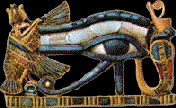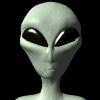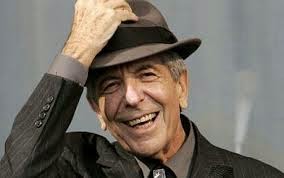Nature certainly has it all fixed, I'd say. No matter what we do, our genetic blueprint will dictate what happens to us and when. Which gives me pause to think: Insects, especially bees, ants, they all die soon after procreating. It's their main purpose. In fact, all animals seem to have that purpose, to reproduce for as long as possible, then quickly die. They don't hang around in that limbo called "old age". Not like the human animal, who can choose whether or not to have young, and can even choose how they age. Humans are the only mammals who grow into older age for no natural reason (you have to be coldly analytical here) and contribute nothing of substance to the commune. I know, it rings of the icy logic of nature. But is it true? Once we have children, and they are sufficiently weaned from us, why do we continue living? What force of nature keeps us alive into our 70's, 80's? It's not an inviting life, either. Like other mammals we're prone to bone loss, heart disease, cancerous cells, a plethora of illnesses which cost us dearly, emotionally, financially, spiritually. So why do we age, while others species never do?
The elephant, now there's a similar example of growing old for no viable reason, and yet there's a very good reason, which I'll explain. It takes almost 3 years for the baby elephant to gestate, and if it's female, remains with its mother for the rest of her life, having babies of her own. The male is rarely tolerated and must leave the herd when fulled weaned, going off to find his fortune, perhaps starting his own herd. The elephant lives a long time in comparison, over 70 years, well past the time to procreate. So why does it live on? In studying these wondrous creatures it's found that the aged and elder of the herd are always the decision-makers, the keepers of the health of the commune by not allowing rogue elephants to mate with the females. They preserve the viability of the genetic health of the herd. They lead the young to water, when none can be found. They show the young where to migrate for the best grasses. They teach the ways of fending off predators, and in their numbers they form a true family bond, eagerly followed by the young. So the elephant world has a use for its elder members. Why are others different?
Look to the ape family, the closest to our own species. When a female is past the age of bearing young, she is tolerated for a short time by the pack, but only by her relatives, then left to fend on her own. Ignored and left out of special feedings when meat is available, she soons starves or dies of disease. Yes, apes eat meat on occasion, usually monkeys. But the point is, once you can no longer give anything of import to the pack, you're considered a burden, and because you're older you are susceptible to all the illnesses we humans are, including SIV, the simian form of HIV. None of the wisdom you may've collected in your life is of any use, since nature sees with its cold icy eye that having you around is more trouble than not. Is this starting to sound a bit familiar?
The human animal ages if allowed to live healthy, born without disease, and lives in the proper environs. In aging, we acquire illness and disease making it a burden for us to live, and for others to care for us. The total wisdom collected in our lives is rarely respected, if even tolerated. And yet, the Asian people see their elderly as honored living treasures, and treat them accordingly! What's wrong here in the west, why do we fear aging so? Perhaps because it's the harbinger of death, and that's a state we only hope is not some oblivion since we have no proof at all that our molecules won't dissipate into the atmosphere when our bodies decay. We cling to our faith in a Special Being, a God, who will welcome us (who will we be when we die though?) yet it's easier to believe than not to. We know in our hearts there's a chance our Judeo-Christian God may not be what we imagine, and the afterlife is something so alien to how we think now that it's just unimaginable, using the limited brain power we have. This tableau frightens many into offering prayer to something they don't really believe in but would rather not chance the prospect of oblivion, so they believe in what they're told is true.
This can have nothing to do with religion, it's about the cold, clear waters of science and nature. Belief in God is something that comes from the spirit or soul, and we choose to believe because it comforts us. No matter how many times I pray to God, meditate on what He is, I cannot explain Him. But I understand nature and can explain that, still it puzzles me why nature allows the human to continue on into old age if for no other reason than we can. People live so much longer now, is that natural? Hasn't anyone noticed how many humans are on this planet compared to other species? And in that regard, what about habitat? Most animals require a certain amount of space to live a normal, healthy life. Except humans, who demand the whole planet as their habitat, and not content with that have propelled our bodies far into space, to explore other worlds. I know of no other creature who only truly needs a small amount of space to live but demands all of the planet and then some. We even rob the habitats of other species to use for ourselves, and end up misusing that space by trying to farm it. Why would such a life form be allowed to procreate at will, take up all the space they can buy or steal, and the big question, live for such a long, long time? I feel in my bones that nature will win out in this question, and someday humans may be confronted with the hard fact that, as a species, we may not be as successful as we think, after all.
















































7 comments:
Definitely food for thought.
Barb
How ironic that I should come upon your journal and read this??? lol I ponder this kind of thing all the time.
Working in the ER, I come into contact with so many elderly (or should I say REALLY REALLY old people), who wonder themselves, why they are still here. They have no one. They have outlived all their family members, and even their children. They are sad, depressed, and feel no reason to remain in this world, as we know it. It saddens me. I wish I had an answer for them, but I don't. Being in my early 50's, I think often of death. Probably far to much then I should. I've always been that way, though. I've been waiting to die since I was 12 years old. Don't ask me why, I have no clue. I keep waiting to die, but I'm still here. It's not that I want to die.. I just keep expecting it to happen.
I guess I got off track from what you were talking about.. but, hey... you do "dare me to think".. and I did! lol
Jackie
hugs Cathy!
hey we hang around because we have so much to learn and so much to do!
love,natalie
Making my rounds through J-land, wanted to stop & wish you a happy wkend! :)
Sugar
I like stopping by here. Sometimes I read your entry several times over because it truly gets me to thinking. I'm the family member who gets teased because of all the questions I ask. But I like knowing things; the why behind everything. I somehow lost contact with you. Either the alerts got messed up or ...who knows. With AOL, nothing works half the time. Any way, I came looking for you. Took awhile but I'm happy I located your journal again.
Looking forward to your next entry.
Barb- http://journals.aol.com/barbpinion/HEYLETSTALK
http://journals.aol.com/barbpinion/THERESTOFTHESTORY
Defintely this entry "Dares one To Think". I learned a lot from this entry about different mammals. It may be we live longer than most species as we are always trying to make things right. Also, no matter how much we wean our children to live on their own and make their way in the world, unlike other mammals, it is usually the Mother to whom we all direct our problems, thoughts, opinions and to whom we ask for help when we are in trouble. For me I believe that when we have stopped procreating at least to create another human being, we go on in our families, creating a safe harbour for them to come to when they are in need. They know that although they may be able to stand alone and be self sufficient, the mother is always there to turn to when they need her. This does not apply in other species. So although many die young in our human habitat, many live on and become the rock so to speak or mainstay of a family, even though the children wean themselves from the mother, I still feel in some way the thread of the umbilical will always exist and the safe harbour that we may need at times is always in that of the mother.
TreesRGreen78
ILove this entry! And I love what Trees wrote too! I still think that we have sooooo much growth to do this lifetime that is why we are here!
love,nat
Post a Comment